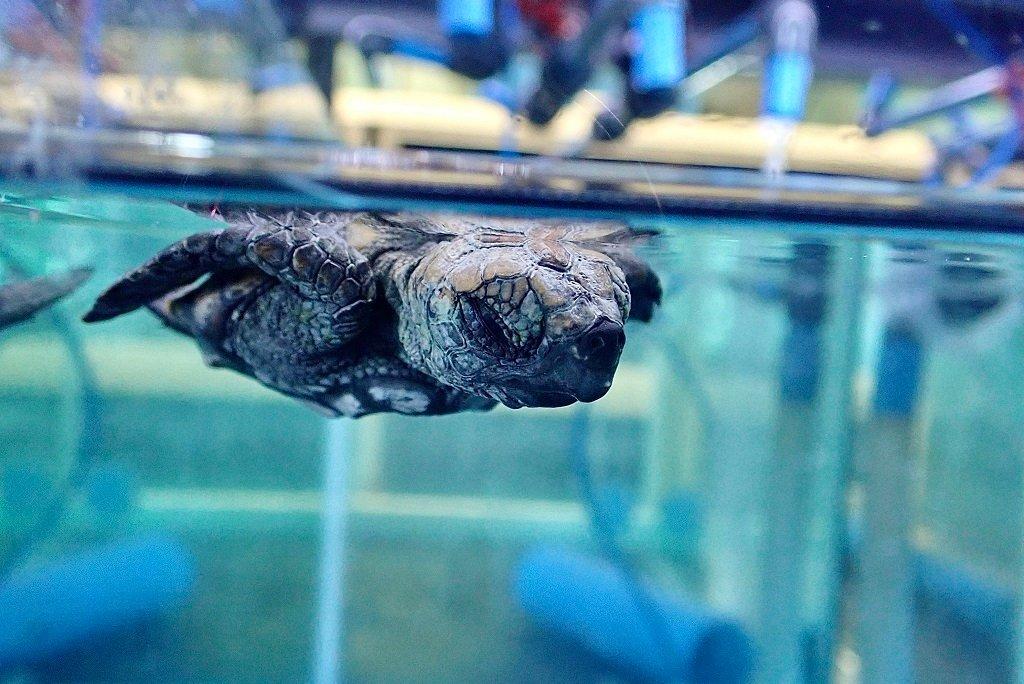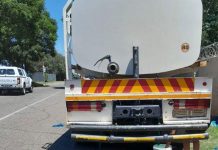Africa-Press – South-Africa. Most of the sea turtle hatchlings in the care of the Two Oceans Aquarium have been excreting plastic.
This week, the Two Oceans Aquarium tweeted a picture of the plastic collected from the excrement of the sea turtles. The Two Oceans Aquarium is rehabilitating 119 of these hatchlings, and nearly all of them excreted plastic.
According to Renée Leeuwner, communications manager at the aquarium, the hatchlings are brought for rehabilitation from as far as Plettenberg Bay and Struisbaai – towards the east. Some of them even come from the West Coast.
The turtles hatch on the northern coasts of KwaZulu-Natal, where they enter the warm Agulhas current. The current flows along the east coast of South Africa towards Struisbaai. “It is during this journey that the turtles are then pushed out of the warm current and into the cold water. They become hypothermic, are injured and eventually expelled onto our beaches,” explained Leeuwner.
The turtles wash up on beaches annually and are brought to the aquarium and the Two Oceans Aquarium Education Foundation. More turtles are expected to arrive at the aquarium in the next couple of weeks. Most of the little turtles have been in the aquarium’s care since mid-March.
The rehabilitation varies from providing turtles with medication, specialist food, x-rays and physiotherapy.
“…Whatever it takes to get the turtles strong enough for release. The rehab process can take anything from a couple of months to years,” said Leeuwner.
Entrepreneur sisters recycle your plastic to make bricks, and it works
The little turtles may have mistaken the plastic for food, explained Leeuwner. The turtles drift with the current and rely on finding food that floats with them. “Unlike humans, animals cannot distinguish between food and plastic. So, because the turtles are reliant on finding food when they are drifting with the current, they mistake the plastic for food,” said Leeuwner.
Plastic can look like the plants or jellyfish, or other animal material turtles eat, explained Leeuwner. Last year nearly three quarters (71%) of the turtles in the aquarium’s care excreted plastic.
Dangers of plastic
Leeuwner said that plastic poses dangers to marine life and microplastics – fragments of less than 5 mm – could be found in marine animals as small as plankton. “… Plastic is completely encased within the marine food chain – from the smallest building blocks to the largest animals like whales and humans,” said Leeuwner.
Plastic can also entangle animals. “Many animals die because they become entangled in plastic. Animals like mammals and turtles have to surface to breathe. If they become entangled, they cannot surface and drown,” explained Leeuwner. The aquarium has had to cut off nooses from seals that have become entangled and assist in bird rescues.
Some animals like sharks need to keep moving to breathe. If they become entangled they will suffocate, Leeuwer warned. “Other animals like seals, fish, birds can become entangled and either strangle to death or grow with the noose around them until they strangle to death.”
The plastic ends up in oceans from land-based pollution – such as litter which gets blown or washed into the sea – and ocean-based pollution – from ships.
Consumers can make a difference by opting for reusable products instead of single-use plastics and products. “This can be as simple as saying no to plastic straws, bags and balloons,” said Leeuwner.
Consumers should also be responsible in managing waste and recycling plastic. A good step would be to reduce your plastic use and find alternatives such as reusable shopping bags.
“Cut any loops that you place in your recycling or dispose of. These pose a strangulation and entanglement risk to all animals, both terrestrial and marine,” said Leeuwner.
“Your actions on land have a far-reaching effect. All drains lead to the ocean, so your litter can still reach the ocean no matter where you are inland,” said Leeuwner. “Always start with one thing. This usually leads to another and another. But always start!”
For More News And Analysis About South-Africa Follow Africa-Press






